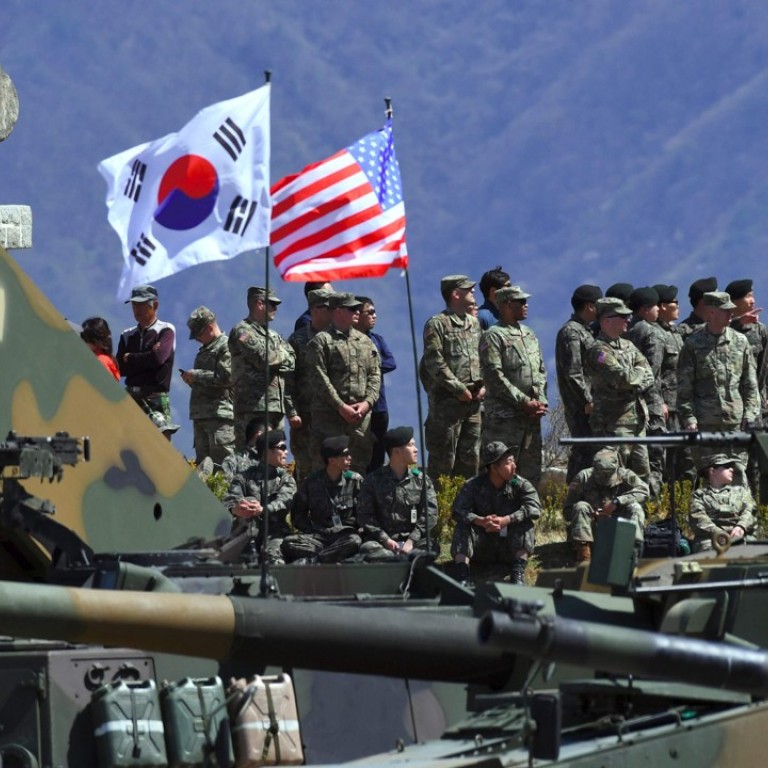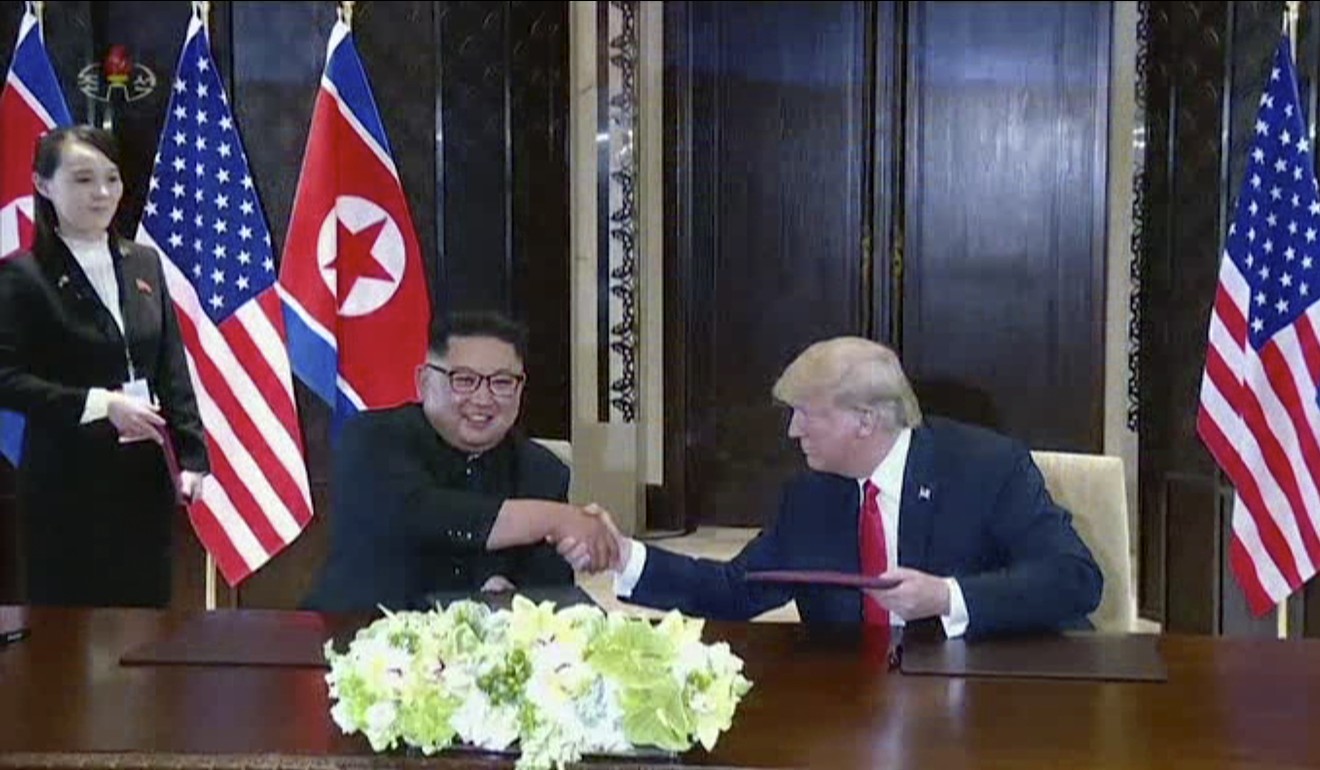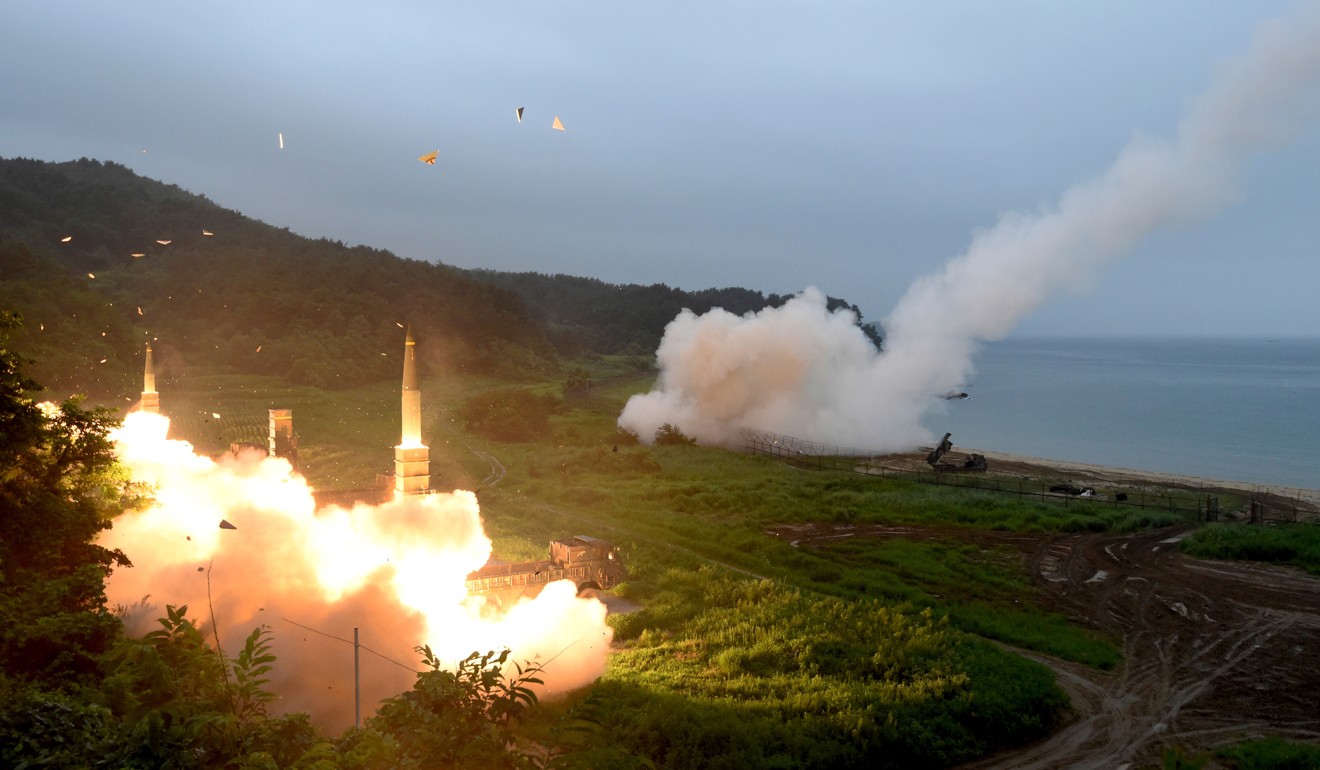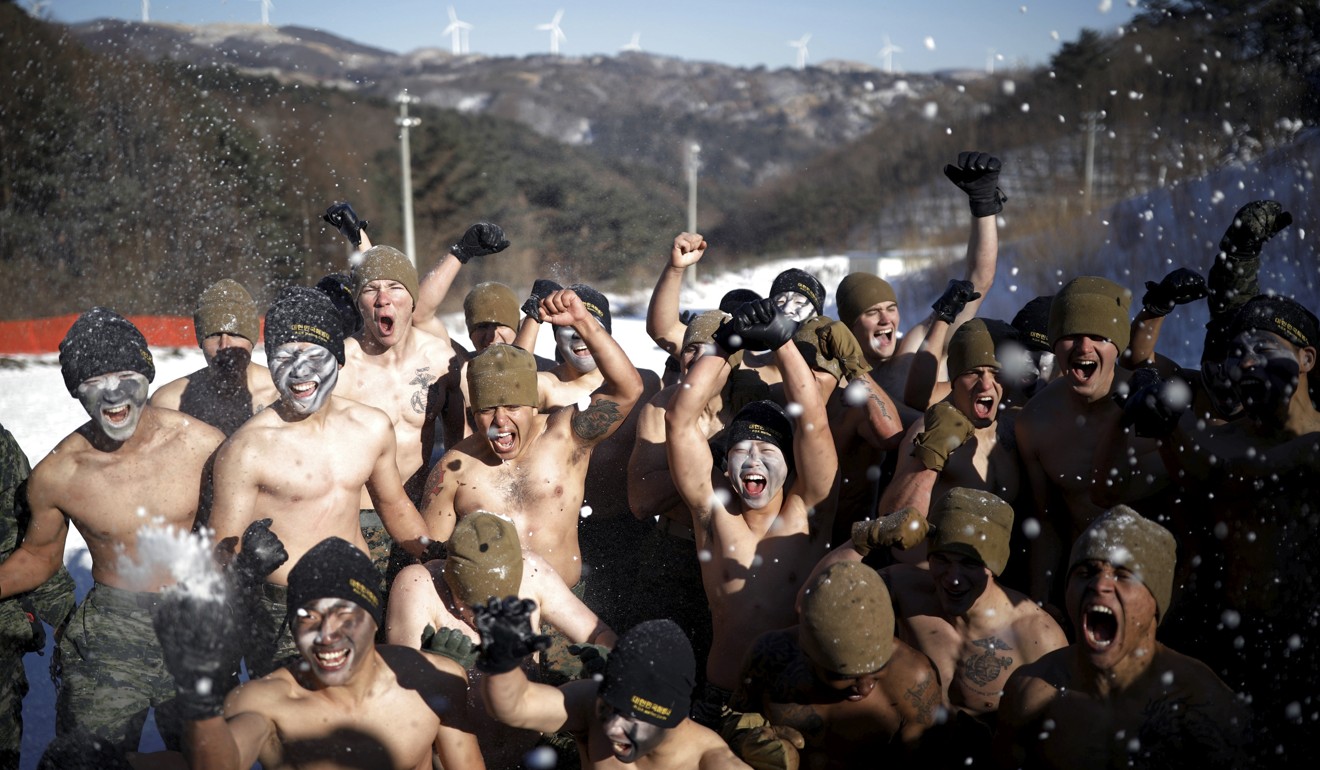
US and South Korea will suspend their August military drills, Seoul says after Donald Trump was won over by Kim Jong-un
The suspension of the annual Ulchi Freedom Guardian exercise came after US President Donald Trump ‘war games’ with South Korea were ‘very provocative’ to North Korea
The US and South Korea will suspend Ulchi Freedom Guardian, the major joint military exercise that they hold every August, Seoul said on Tuesday.
The suspension comes after US President Donald Trump announced that he wanted to halt “war games” with South Korea, calling them “tremendously expensive” and “very provocative”, following his meeting with North Korea’s Kim Jong-un in Singapore last week
South Koreans wonder: ‘Are we better off now than a week ago?’
“Through close discussions with the United States, [the two countries] decided to suspend all of the planned activities regarding Freedom Guardian military drills,” the South Korean Defence Ministry said in a statement.
The ministry added that there are no future military drills planned as yet, and that the two countries will continue to discuss the matter.

Trump surprised officials in Seoul and Washington with his pronouncement last week. Immediately after the remarks, US forces in South Korea said they had received no guidance on stopping any drills, and South Korean officials said they were trying to figure out which exercises Trump was referring to.
At a Senate hearing on Thursday, Trump’s nominee to be ambassador to South Korea, the retired admiral Harry Harris, backed the idea of a “pause” in major military exercises.
He said his understanding was that any suspension would involve only major military exercises and that regular training of US forces in South Korea would continue, although final decisions were up to the Department of Defence.
For Japan and South Korea, nuclear threat far from over
Trump said via Twitter on Sunday that it was his initiative to suspend military drills – a step North Korea has long sought.
“Holding back the ‘war games’ during the negotiations was my request because they are VERY EXPENSIVE and set a bad light during a good faith negotiation,” he wrote. “Also, quite provocative. Can start up immediately if talks break down, which I hope will not happen!”
Trump also tweeted a defence of widespread criticism of the summit, his apparent concessions to Kim and his praise of the authoritarian leader.

“Funny how the Fake News, in a coordinated effort with each other, likes to say I gave sooo much to North Korea because I ‘met’,” Trump wrote. “That’s because that’s all they have to disparage! We got so much for peace in the world, & more is being added in finals. Even got our hostages/remains!”
He added: “The denuclearization deal with North Korea is being praised and celebrated all over Asia. They are so happy! Over here, in our country, some people would rather see this historic deal fail than give Trump a win, even if it does save potentially millions & millions of lives!”
Trump says North Korea stand-off ‘largely solved’ by giving Kim his number
About 28,500 US troops are stationed in South Korea, a legacy of the Korean war, which ended in 1953 in an armistice that left the two Koreas technically still at war.
The US-South Korean exercise calendar hits a high point every year with the Foal Eagle and Max Thunder drills, which both wrapped up last month. The next major drill, Ulchi Freedom Guardian, is planned for the end of the summer.
Last year, 17,500 US and more than 50,000 South Korean troops took part in Ulchi Freedom Guardian, an exercise mostly focused on computerised simulations rather than live field exercises that use weapons, tanks or aircraft.

South Korean President Moon Jae-in said on Thursday that his government would need to be flexible when it came to applying military pressure on North Korea if it was sincere about denuclearisation.
Moon said South Korea would carefully consider joint military drills with the US and asked his officials to cooperate with Washington on the issue, his office said in a statement.
Yonhap also reported on Sunday that during military talks between the two Koreas on Thursday, South Korean officials asked their northern counterparts to relocate artillery 30km to 40km (18 to 25 miles) away from the heavily fortified military demarcation line that divides the two countries. The South’s defence ministry denied it made such a request, Yonhap said.
With one handshake, Trump provides fuel to a brutal regime
The talks, the first in more than a decade, were held in the border village of Panmunjom in the demilitarised zone (DMZ) and followed an inter-Korean summit in April at which leaders of the two Koreas agreed to defuse tensions and cease “all hostile acts”.
North and South failed to reach any concrete agreement, officials said. North Korea proposed the disarming, on a trial basis, the Joint Security Area in Panmunjom, the only site in the DMZ where both countries’ soldiers stand almost face to face, the South’s presidential spokesman said on Friday.



